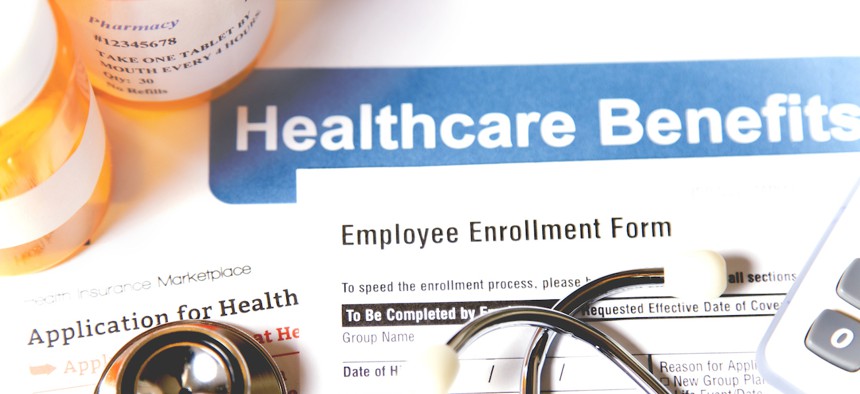
fstop123/Getty Images
Open Season: You really ought to review your new benefit choices for 2024
Make sure the plan you have from last year is still the one that makes sense for you.
We’re now smack dab in the middle of Open Season. That means there is still plenty of time to review your current federal health benefits selections—and maybe, just maybe—save a lot by switching things up a little for 2024.
With over 150 health insurance plans to choose from, many changing year-to-year—in premium prices and coverage—still the vast majority of feds do not seriously review their options. While not everyone should change their plans, with so few—less than 5% of feds—actually electing to make any change, according to the Office of Personnel Management, “our [federal] workforce could be leaving behind valuable savings.” As OPM Director Kiran Ahuja puts it, “Federal employees and annuitants should take advantage of Open Season to conduct a wellness and financial check-up for their health care coverage to ensure they are getting the most from their benefits.”
So, nevermind what you didn’t do yesterday. Now through midnight on Dec. 11, you still have time to review and select (or not) new options under the Employees Health Benefits program, the Federal Employees Dental and Vision Insurance Program —or to make use of a Federal Flexible Spending Account Program.
The National Active and Retired Federal Employee Association points out that for 2024, the average fed’s premium costs will go up substantially in 2024—by 5.8%. “Growth in health care costs typically outpaces inflation in the rest of the economy, and this year is no exception,” William Shackelford, NARFE’s national president, warns in a recent statement.
Paul Fronstin, who directs the Health Research and Education Program at the Employee Benefit Research Institute, has done extensive research into the ways well-considered insurance choices can save families “hundreds—even thousands—of dollars in a given year.” He urges federal employees to not let Open Season slip away without at least reevaluating their benefits choices—especially health insurance.
“You shouldn’t let the opportunity go by,” Fronstin tells Government Executive. “Even if in the end it makes sense not to change your current plan, it also makes sense to be sure the plan you have from last year is still the one that makes sense for you.”
Maybe your family situation has changed—you’ll be welcoming a new child or have one leaving your health plan. Maybe aspects of your existing health plan or your healthcare providers who currently honor it have changed. “Or, maybe, your own health status—and what you need to do about it, tests, possible treatments—this coming year has changed,” he adds.
“These important health insurance choices are definitely not only about getting older,” he says. “Things happen—and they can happen to anybody at any time. That’s why we have insurance—and need to choose the right insurance for us. Maybe you or someone in your family has been recently diagnosed with diabetes or heart disease. Or maybe there’s a health status change from an accident or a sports injury—and soon there will be a need for physical therapy.”
The point, Fronstin says, is all feds need to take a look at next year’s plans, and “consider the tradeoffs. And the big tradeoff on the table every year, of course, is weighing plans that lower premiums versus the higher deductible such plans entail.”
The goal is to find that plan that hits the right spot for your family—the best price that still covers your expected needs.
“Of course, it can be an educated guess, a bet—sure,” Fronstin says. “But don’t dismiss it—in fact, it’s an informed or educated decision, one you owe it to yourself and your family to make.”






